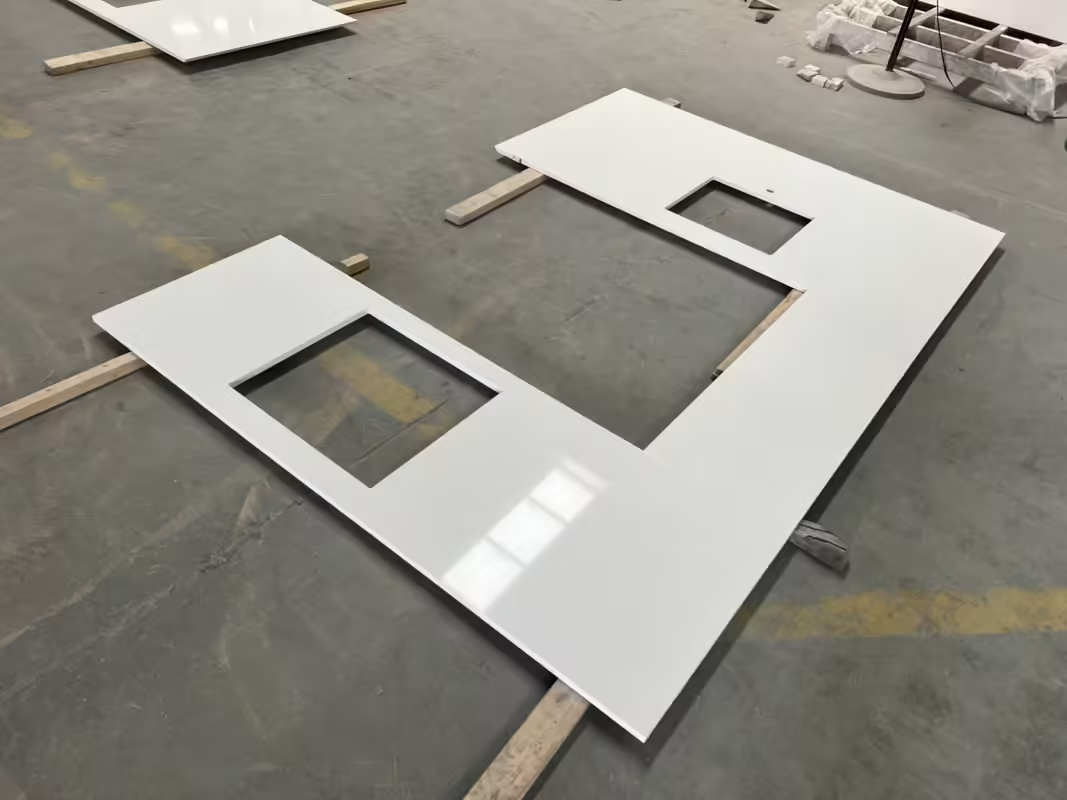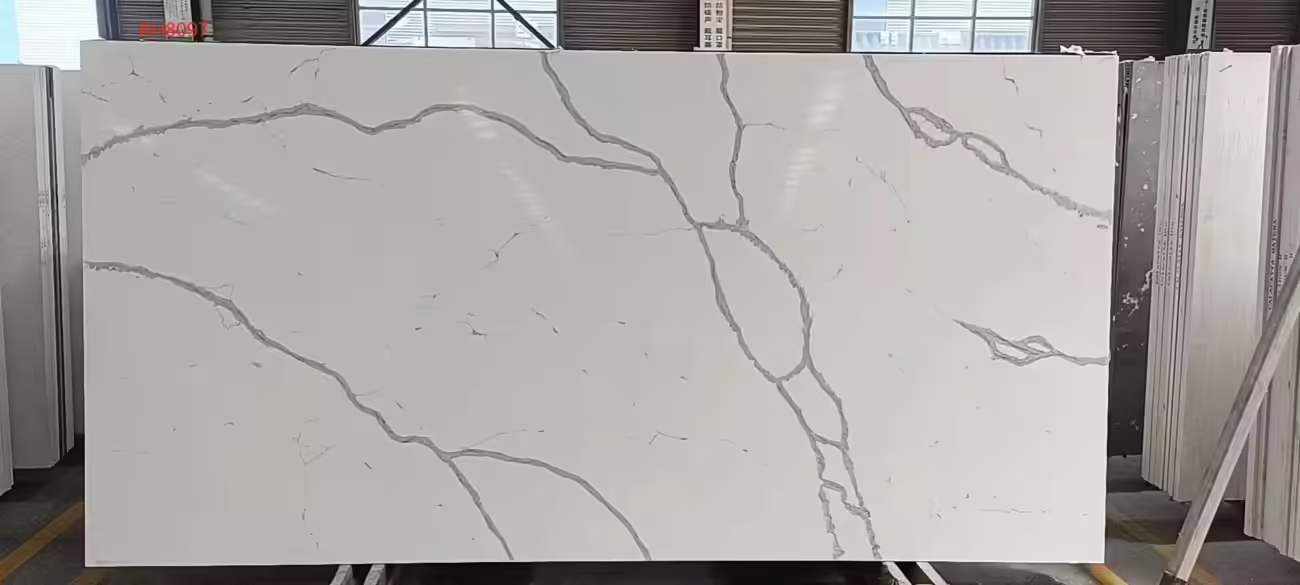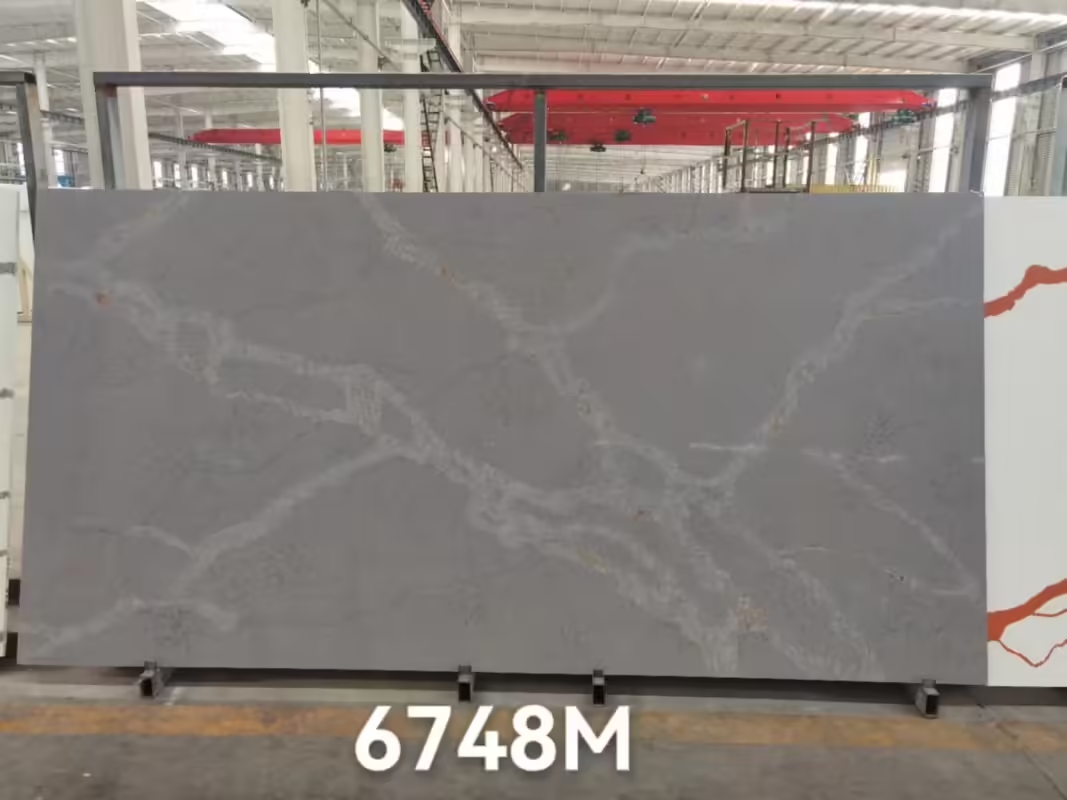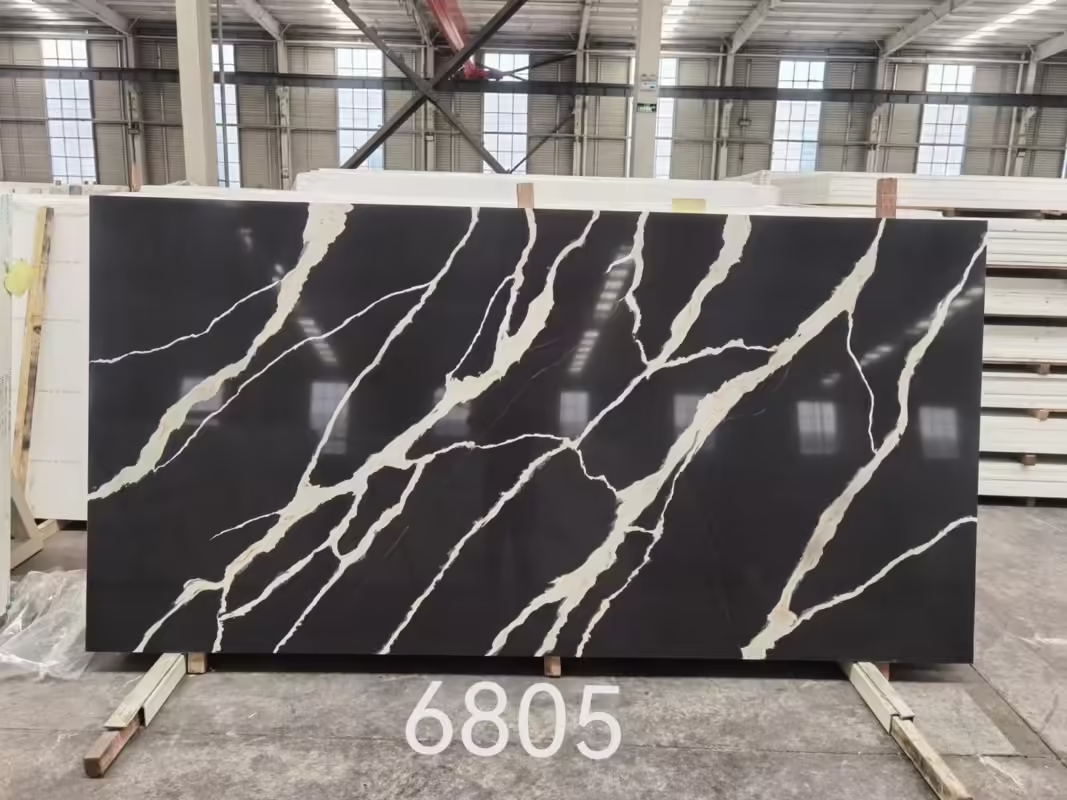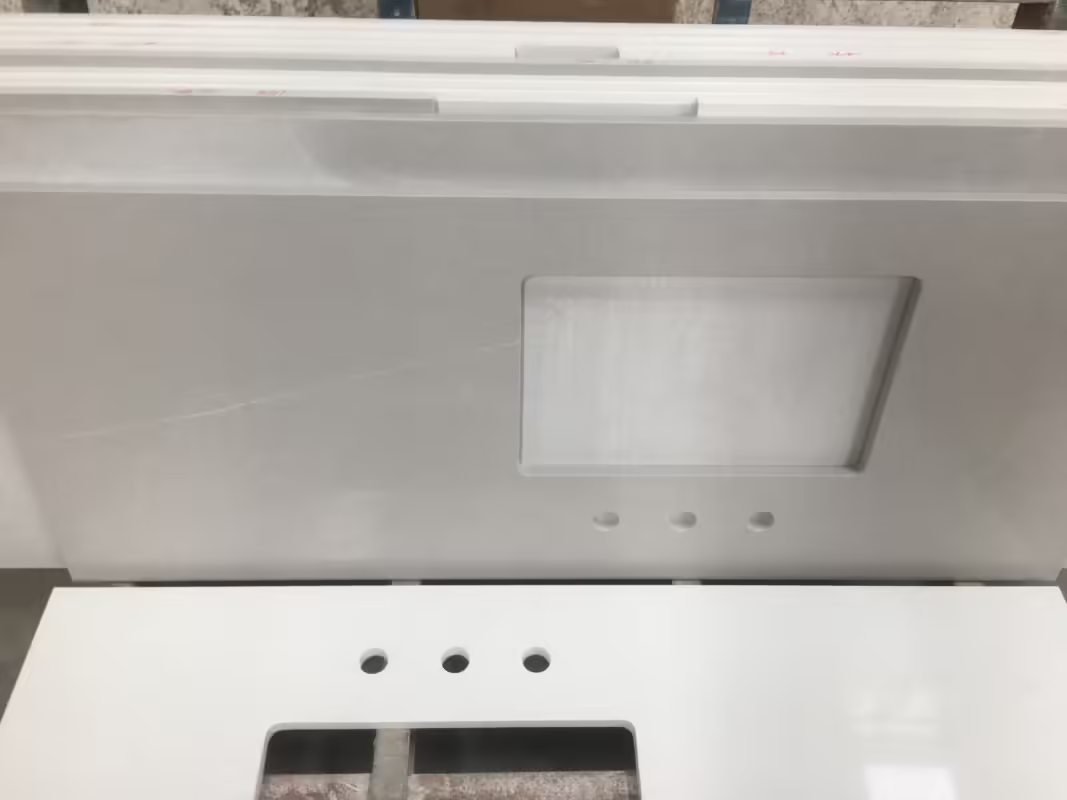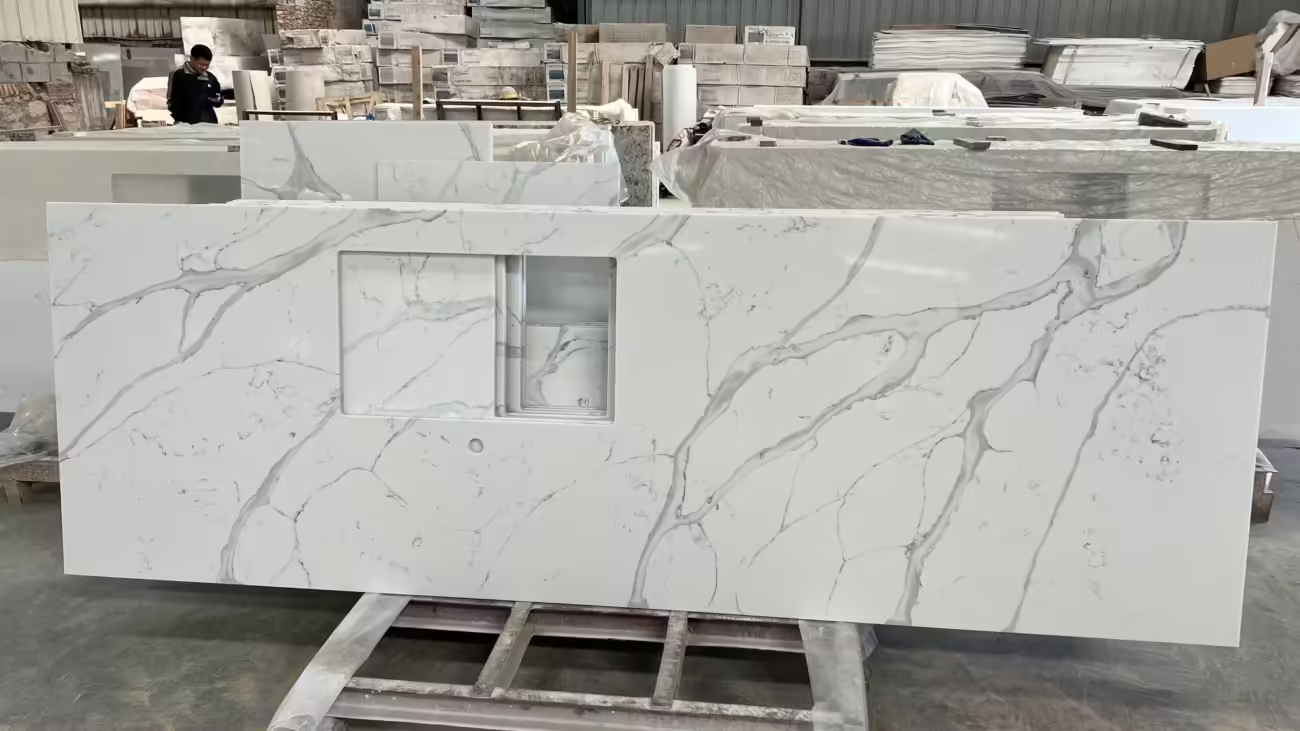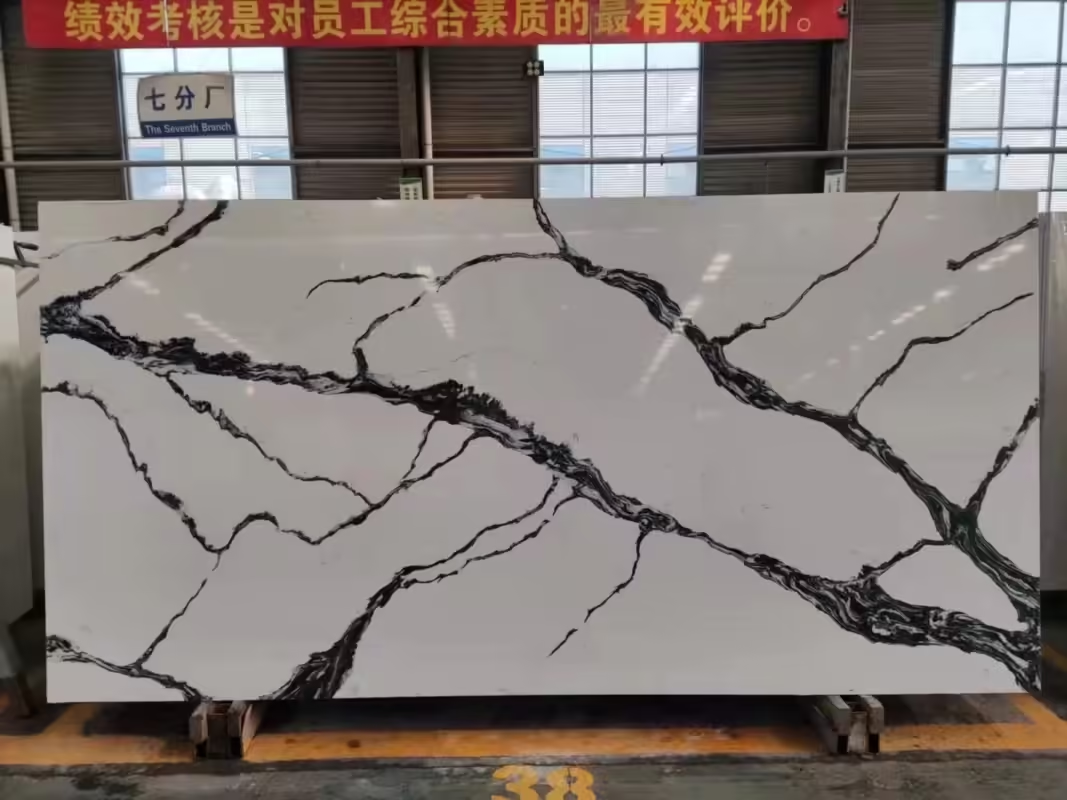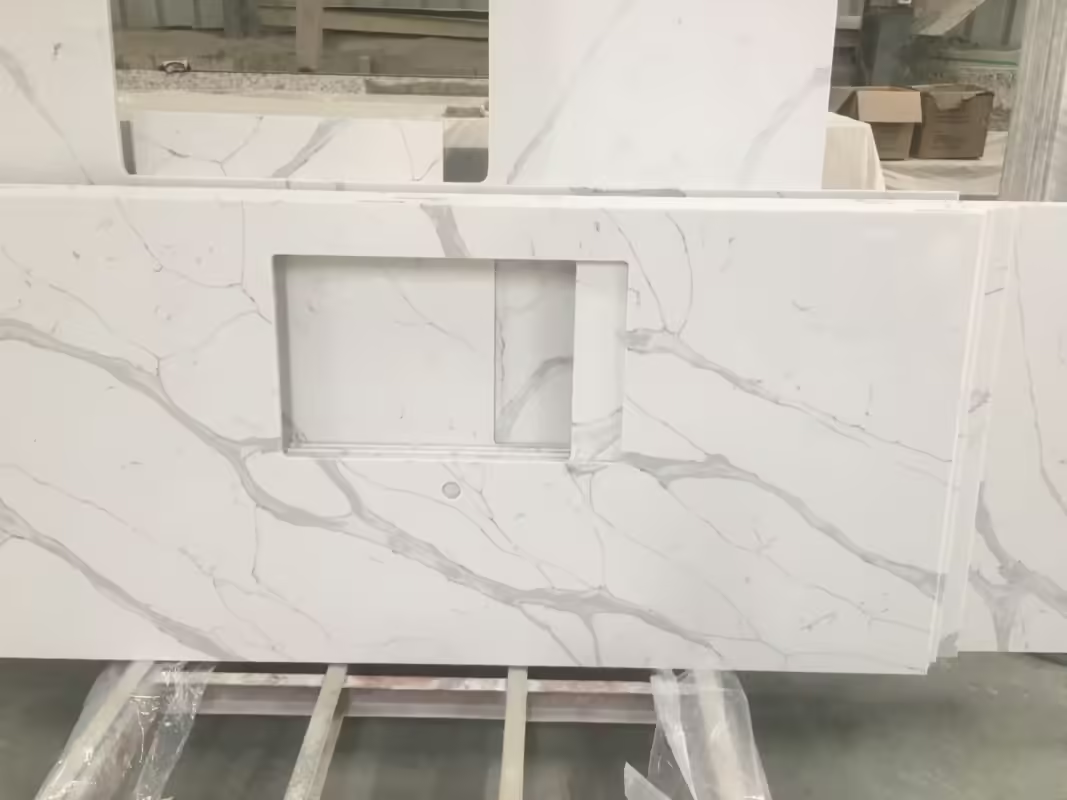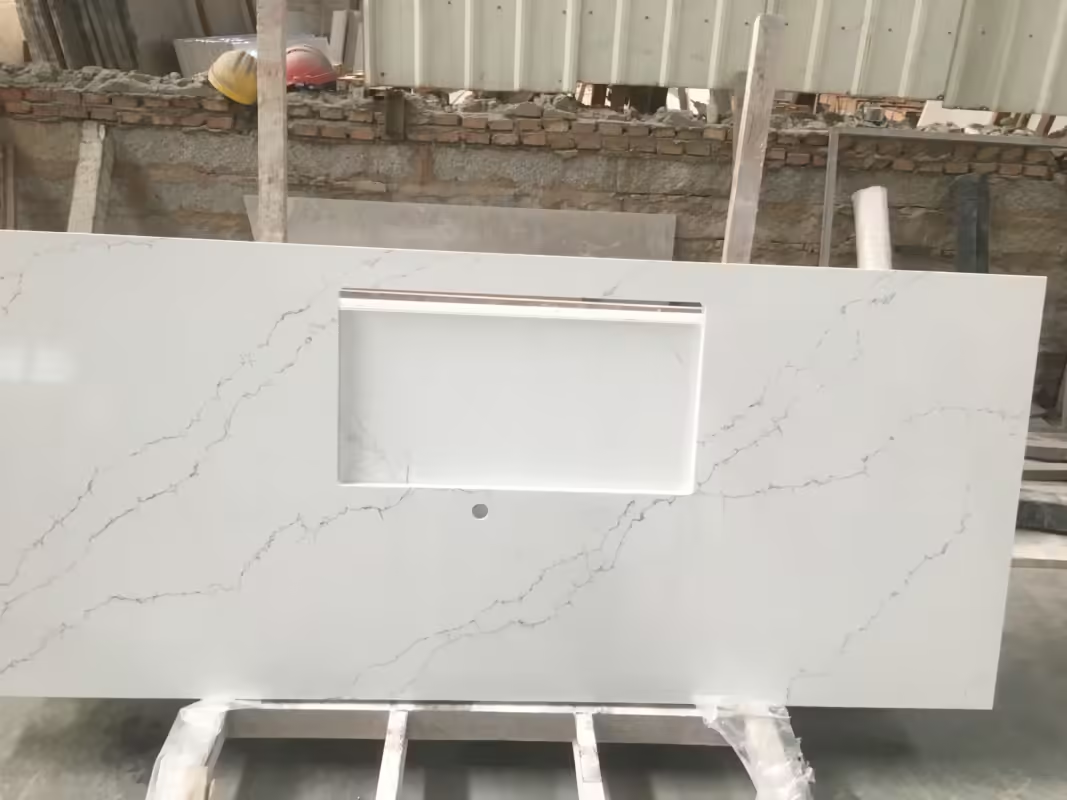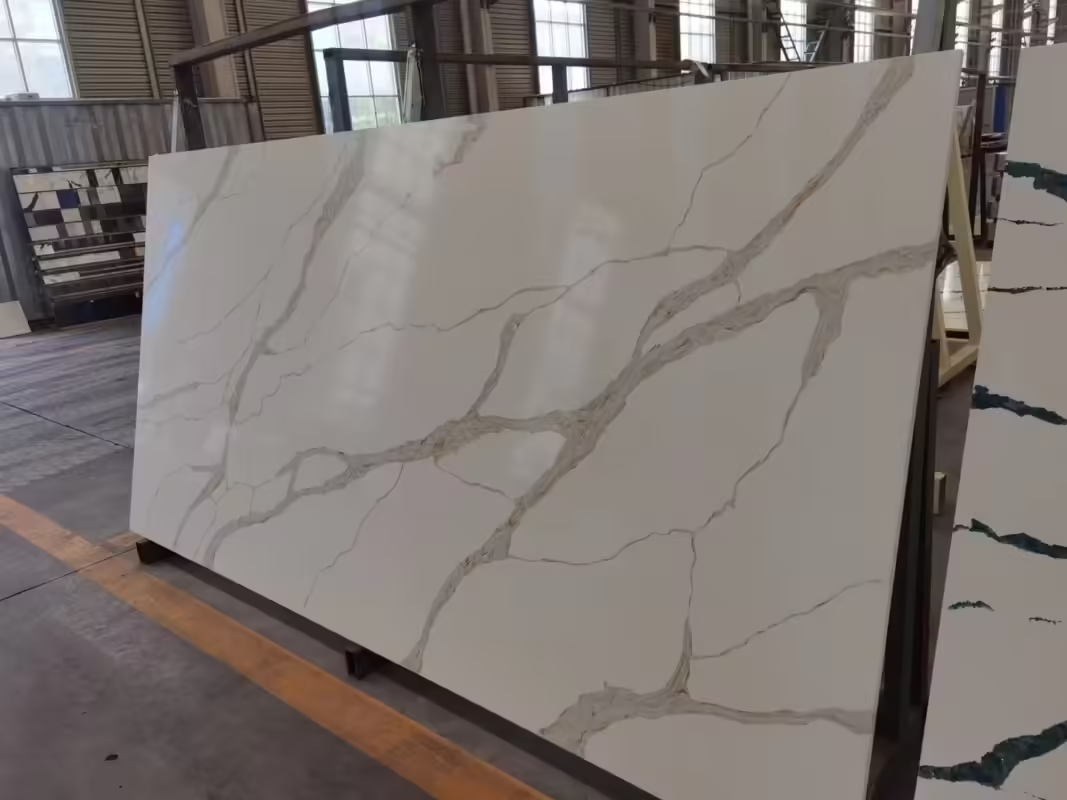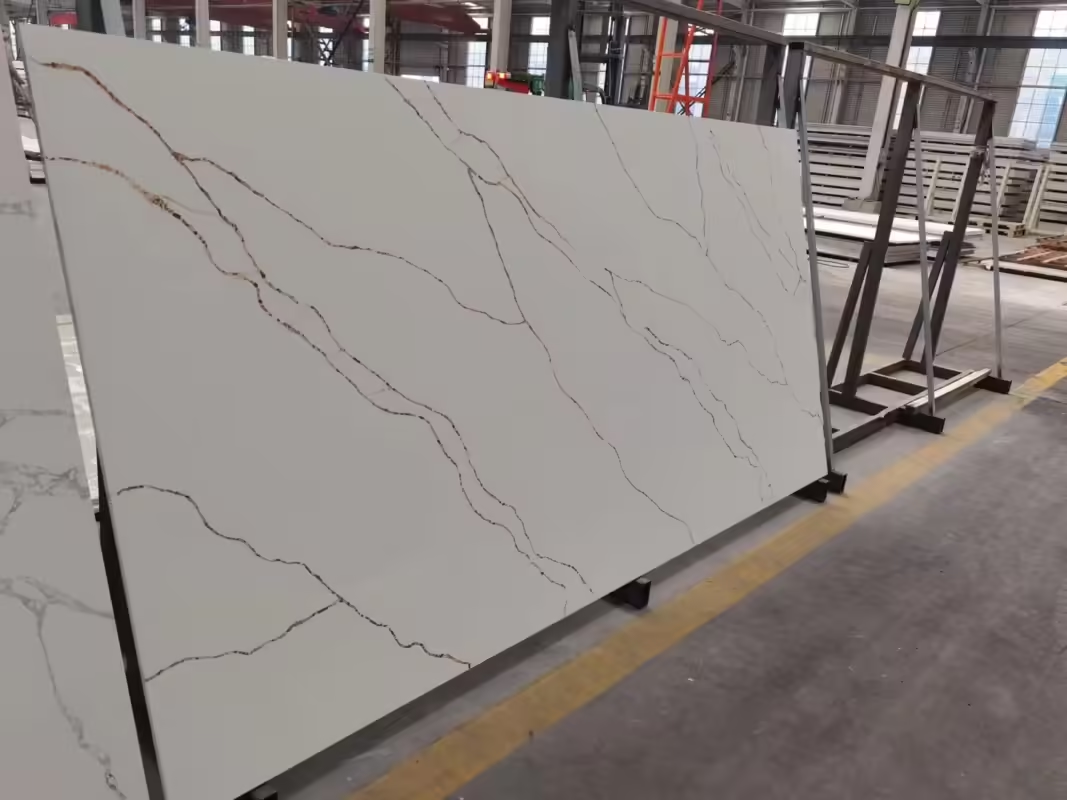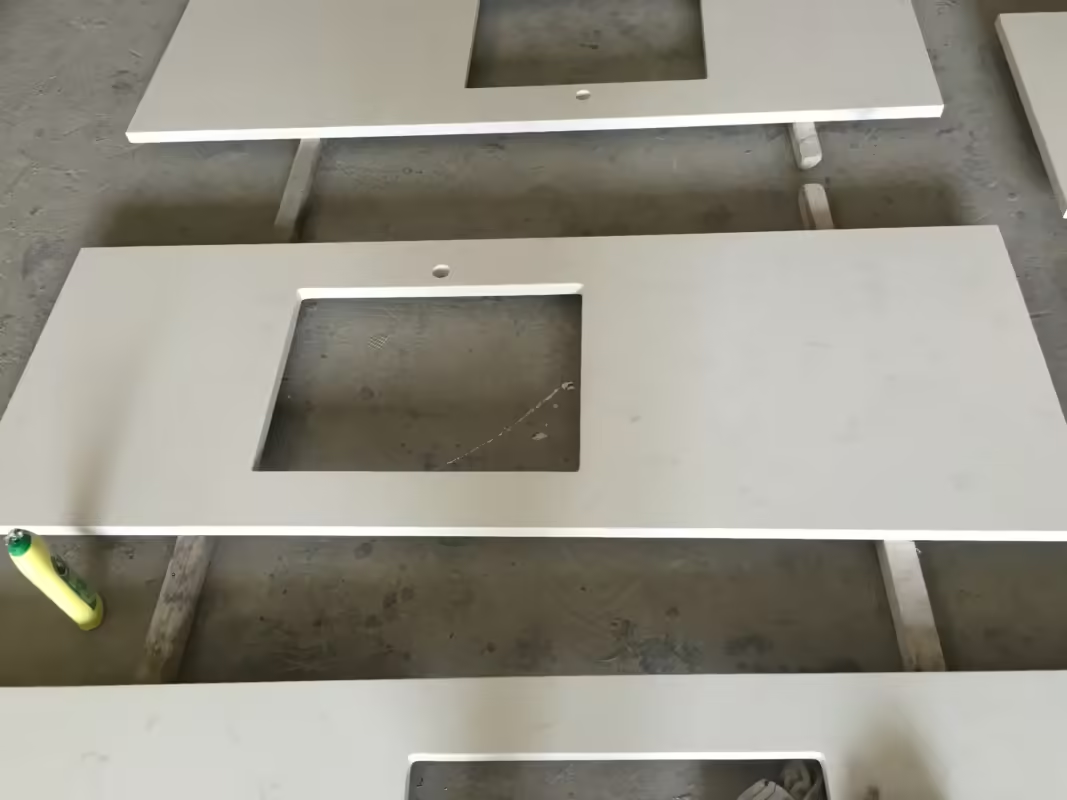Blog
Understanding Artificial Quartz Stone: Composition and Properties

Artificial quartz stone is a man-made product that has become popular in various applications due to its superior properties compared to natural stone. Here’s a closer look at what artificial quartz stone is made of and its key characteristics:

- Composition: Artificial quartz stone is composed of approximately 90-93% natural quartz aggregates, which are mixed with polymer resins and pigments. The natural quartz particles give the material its hardness and clarity, while the resins help in binding the particles and providing color.
- Hardness: Quartz is one of the hardest minerals on the Mohs scale, making artificial quartz stone extremely durable and resistant to scratches, chips, and dents.
- Non-Porous Nature: Unlike natural stones that require sealing, artificial quartz is non-porous, which means it doesn’t harbor bacteria or viruses and doesn’t stain easily. This makes it ideal for kitchen and bathroom environments where hygiene is a priority.
- Thermal Stability and Impact Resistance: Although quartz should not be directly exposed to high temperatures, it is relatively heat resistant and can withstand moderate temperatures without being damaged. It also has good impact resistance, further enhancing its durability.
Conclusion: The properties and composition of artificial quartz stone not only make it an attractive option for many homeowners but also ensure its longevity and ease of maintenance. Whether used in kitchens, bathrooms, or commercial settings, artificial quartz stone offers a blend of aesthetic appeal and functional excellence.
